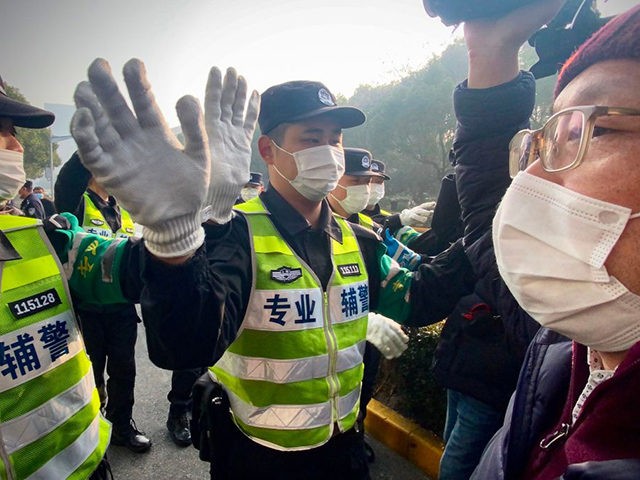Chinese Communist Party (CCP) officials stand accused of trying to silence reports that a villager in southern China blew up a government office building last week after the local government mishandled a property dispute.
A 59-year-old man surnamed Hu reportedly detonated an explosive device inside a local Communist Party office building in Mingjing village, located near the southern city of Guangzhou, on March 22. Hu was among five people killed in the explosion, which also wounded five others, according to reports. While Chinese authorities confirmed the blast and its casualties, the CCP has not named any of the victims; official state media reports refer to the suspect, Hu, by his last name only. China’s state-run press agency, Xinhua, described the attack as an act of “sabotage.”
“[L]ocal journalists say they have been told not to report the case. Repeated calls to Panyu district police [in Guangzhou] for comment were not answered,” the South China Morning Post reported on March 30. “On Weibo, China’s equivalent of Twitter, there was little discussion about it, although a blogger named Sakura said the incident had happened because the authorities had ignored complaints from villagers.”
The South China Morning Post (SCMP), which is based just 70 miles southeast of Mingjing in Hong Kong, interviewed a Mingjing resident named Feng Zhimin who witnessed the bombing as he waited for a bus near the local government building.
“It was so powerful that the windows were blown in and glass scattered everywhere. No one dared to go near the building [after the blast],” Feng said. “I later saw a woman and a man being taken out [of the building] and they appeared to be dead.”
“People were really frightened and there was a lot of smoke. It was very scary,” he added. Feng, 40, was not injured by the explosion despite his close proximity to the building.
The bombing of a government facility in China by a Chinese citizen is rare considering the tight control CCP authorities exercise over people’s rights and internet access. Close government monitoring serves as a major barrier for people seeking to obtain firearms or explosive materials. While the attack in Guangzhou was extraordinary, conflicts between villagers and local CCP committees over land and properties are common in China, “especially when the local authorities … [seek] to requisition land or press for more development,” Shi Xining, a Beijing-based lawyer who specializes in land dispute cases, told the SCMP.
“There are few avenues for redress but administrative litigation is too difficult and costly for ordinary people because you are not sure if you will win or lose,” he said.

COMMENTS
Please let us know if you're having issues with commenting.